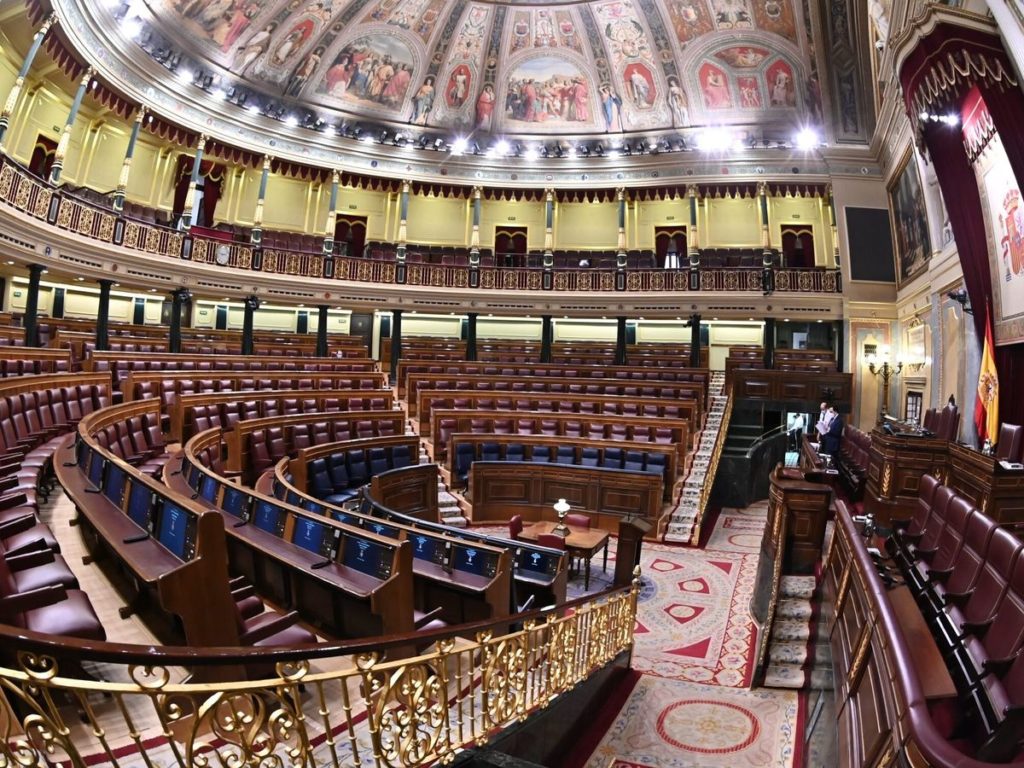
By: Sebastian Mariz, Managing Director of Influence Spain
.
Legislative Agenda 2023
The Council of Ministers has adopted an ambitious legislative agenda for 2023, with 117 legislative initiatives planned between now and the end of the year and the upcoming general elections in December. Environmental and energy related initiatives represent almost a quarter of the agenda planned for this year, followed by initiatives in the justice area and measures to implement economic recovery and resilience plans. Most of the measures planned are royal decrees, which do not require parliamentary approval, and only 25% are laws which will go through the parliamentary adoption process. None of the laws, are expected to pose parliamentary risks for the Prime Minister and will likely be adopted with limited political noise and wear and tear on his socialist group in the Parliament.
In the environment and energy related areas, the Government plans to speed up the development of Spain’s wind energy sector and energy efficiency measures, through adoption of a royal decree on offshore wind installations and another on energy efficiency certifications for buildings. A new framework law on industry, which sets out the foundation within which the Government intends to promote the digitalization of Spanish industry and its sustainable transformation and decarbonization, is also in the pipeline. To this effect the legislative agenda includes a Royal Decree setting out measures to help industry transition away from fossil fuels to sustainable sources of energy, as well as another initiative on subsidies to speed up the production of green hydrogen for industrial use. Both are key to the launch of the HyDeal Spain platform, sponsored by companies including ArcelorMittal, Enagás, Grupo Fertiberia, Naturgy, and DH2 Energía¡, and which is set to become the largest green hydrogen infrastructure giga-project worldwide.
Adoption of a Royal Decree implementing subsidies to speed up production of green hydrogen is also a key component of the H2Med project, which will create a pipeline for green hydrogen between Portugal, Spain, France and Germany. This will be capable of transporting up to 2 million tonnes of green hydrogen per year, which equates to 10% of Europe’s total forecasted demand in green hydrogen by 2030. The pipeline, a joint venture between these four countries, will be co-financed by the European Commission and is considered a European Community Project of Interest. It is set to begin pumping green hydrogen across western Europe as soon as 2030.
The Government also intends to finalize initiatives in the healthcare sector which include a much-awaited Royal Decree on the pricing and reimbursement of new medications and treatments financed under the national health service. The Royal Decree is expected to set the framework to streamline and speed up a process, which, on average, is significantly slower than in other European countries and which delays access to new treatments amongst Spanish patients. Progress is also expected in the establishment of a national surveillance network of infectious diseases, and on the procedures to be implemented for the evaluation of new healthcare technologies.
Another hike in the minimum wage is also planned and will implement the agreement reached between labor unions and the Government setting it at 1.080 euros per month, or 60% of the average salary in Spain. This represents an 8% hike on the current level. This agreement, announced on the 31st of January, by the Employment Minister, Yolanda Diaz and Spain’s main labour unions, was reached without the consensus of the national Employers Confederation, and the CEOE. This foreshadows rocky relations between Spain’s employer with the Government and labour unions in what remains of this legislature.
Important legislative developments are also expected in the transport sector, with initiatives affecting the maritime sector and ground transport. Of particular note, is the implementation of obligatory accident insurance for electric scooters to pay for the increase in road accidents involving these vehicles and their drivers.
Regional and municipal elections
According to the latest general election polls carried out by private polling companies, the conservative party headed up by Alberto Nuñez Feijóo continues to lead in the polls and would win the general elections if they were held today, obtaining 31.1% of the votes and 134 seats in Parliament, 45 more than the 89 seats they currently hold in Parliament. The socialists, in second place, would win 24.8% of the votes and 96 seats in Parliament, 24 less than the 120 they currently hold in Parliament. The far-right Vox party would consolidate their third position, obtaining 16.8% of the votes and 57 seats in Parliament. The far-left, splintered into four distinct and rival groups, Podemos, Sumar, Mas Pais and Izquierda Unida would collectively obtain 13.6% of the votes and 24 seats in Parliament, 12 less than the 36 they currently hold in Parliament. The liberals would not obtain any representation in the Parliament.
Pedro Sanchez convened all of his socialist ministers and party leaders to a pre-campaign meeting for the upcoming municipal and regional elections, on the 13th of January. He wants all of the ministers to work towards supporting municipal candidates from the socialist party in the municipal elections, and to give the regional socialist barons carte blanche in designing and carrying out their own regional election campaigns and promises. Sanchez has prioritized winning the municipal elections in Spain’s large cities and in particular in Barcelona, Madrid, Seville, Valencia and Zaragoza.
An election campaign programme and agenda will be presented to a party congress to be held after the Easter holiday break, at the beginning of April.
Public Debt & GDP
With inflation at 5.8% and starting the year one percentage point higher than in December, forecasts regarding GDP growth this year are slightly more positive than they were at the end of last year, and show Spain finishing the year with a timid growth rate of 1%. The first quarter of the year is expected to be the worst, with the economy shrinking slightly and recovering timid growth of 0.4% in the second quarter followed by healthier growth rates registered in the third and fourth quarters. Employment is also expected to slow down and register fewer new jobs than in the past years, although 350,000 new jobs are expected to be created between now and 2024.
International Relations
At the Franco/Spanish summit in Barcelona held on the 19th of January, Macron and Sanchez agreed to implement a similar friendship agreement as exists between Germany and France. Under this new historical agreement, a French Minister will attend a Spanish Government Council of Ministers meeting once a quarter, and vice-versa. This is the first time that Spain has implemented this type of collaboration, with a European neighbor.
Macron and Sanchez also publicly agreed on the need to take firm action in response to the Biden anti-inflation law. Both leaders do not agree, nevertheless, on what firm action means. Sanchez defends that the EU should be “inspired” by Biden’s new law so as to take similar action in Europe to help reindustrialize Europe’s industry and make it more competitive, rather than enter into a trade and tariff war with the US. Sanchez wants to negotiate a deal with the US, which he considers an ally not an enemy of the EU. He believes that the EU should counter Biden’s subsidy package by tripling subsidies to green and renewable projects, and not entering into a trade war.
Electricity market reforms
Intent on putting an end to marginal pricing and the electricity spot market, Spain’s Environment Minister, Teresa Ribera is insisting on the need to implement EU-wide changes to the electricity market. Her proposals include marginalizing the electricity spot market and promoting bilateral contracts or CfDs, in which gas, hydro and coal generators will compete to sell their electricity at the most competitive price to retailers, in auctions organized by the electricity market regulator, OMIE. The idea being, that by doing so, household electricity prices will be determined by the cheapest electricity on the market and not by the highest, which is usually gas.
Teresa Ribera also proposes that the OMIE should be given broad powers to manage the flow of CfDs, unlike at present. The government’s idea is that the CfDs would be used for wind and photovoltaic plants, which would be forced to offer lower prices in auctions in front of the regulator. This would almost completely change the current remuneration scheme for renewable energy producers
Anticipating the proposals expected under the upcoming Renewable Energies Directives IV and V, and with a view to speeding up the roll out of renewable energies in Spain, Teresa Ribera has also eliminated many of the administrative requirements to be met by renewable energy producers when requesting authorization to build plants and generate electricity.
In particular large projects over 150 MW for solar PV and 74 MW for wind, will no longer be subject to an independent environmental impact assessment carried out by local and regional administrations, if located on unprotected lands. This decision has raised complaints and concerns amongst rural communities and has fueled demands made by a nation-wide platform called «Macro-renewables NO» comprising more than 400 environmental, citizen and rural organizations, city councils and associations. Macro-renewables NO advocates for distributed self-consumption rather than large-scale projects that endanger rural life and activities, as well as the environmental and cultural heritage of these territories, creating environmental vulnerability and legal insecurity.
.
Every month, Influence Spain provides a look at Spanish current affairs. For more information, join our social media profiles on Twitter and LinkedIn.

